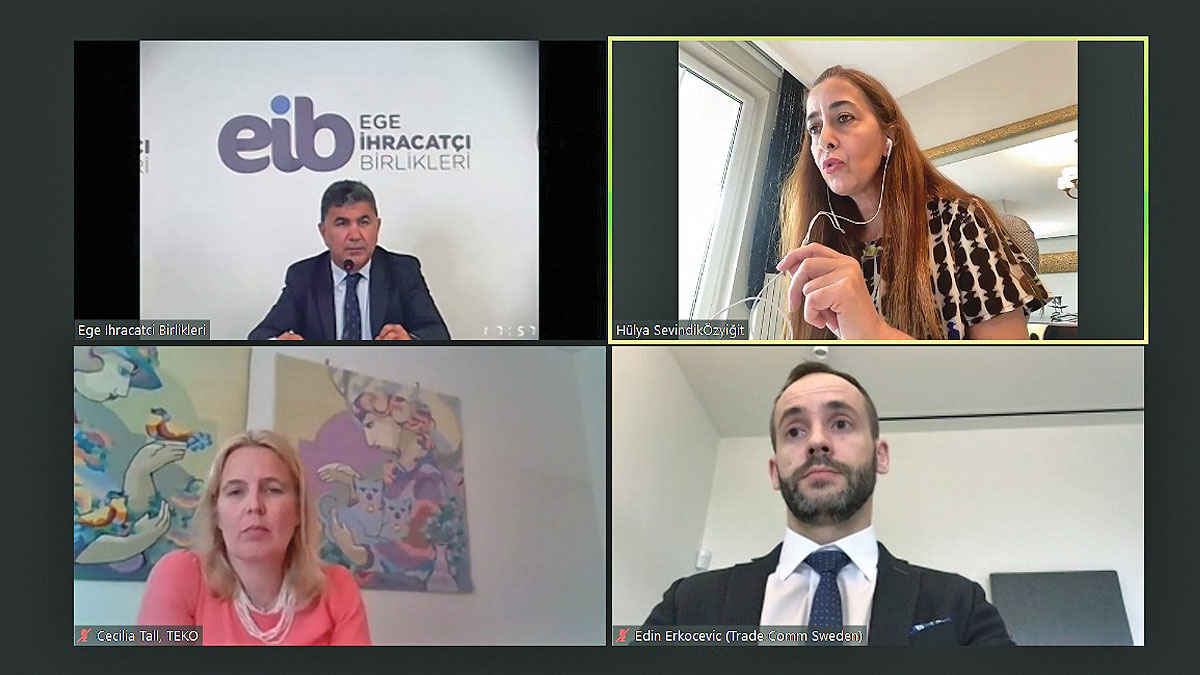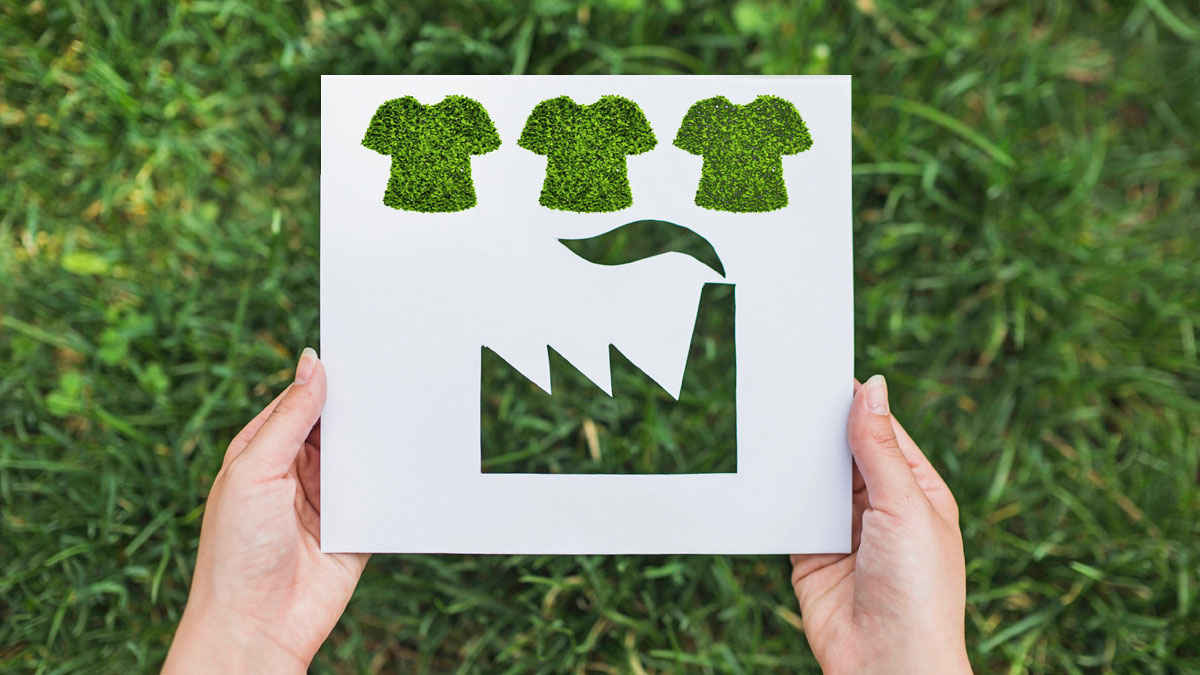The Turkish ready-to-wear and apparel industry is looking for ways to compensate for losses in export markets during the Covid-19 pandemic. In this process, solutions based on value added production and sustainability become prominent. A model in sustainable production stands out for Turkish apparel manufacturers; sustainability role model for the apparel industry Sweden. An online meeting was organized with the cooperation of the Aegean Ready-to-Wear and Apparel Exporters’ Association and Business Sweden, and the criteria that Sweden presented to the fashion and apparel industry in sustainability were discussed.
Sweden, which has been preparing to collect sustainability tax from apparel products starting 2021, also encourages recycling. The steps taken by both the Swedish government and companies on this issue were discussed at the online meeting titled ‘SUSTAINABILITY TALKS: Swedish Fashion Brands’ Strategies for Working with Sustainable Manufacturers after Covid-19’.
Cecillia Tall: be ready, sustainability tax is coming
Cecillia Tall, Secretary General of the Swedish Association of Textile and Garment Manufacturers, reminded that by 2021, if apparels contain chemicals, a tax will be imposed. Saying that this tax aims to protect the environment and ensure sustainability, Tall continued her words as follows; “If you are producing for Swedish companies, they will provide you with a list of ingredients that you should not use. The textile industry causes a lot of carbon dioxide. As a sector, we have a bad name. Prepare for the new system, do not have difficulty adapting”. Tall also added that the European Union will have a new legislation on textile waste by 2025.
Sertbaş: “We need to rearrange our supply chain”
Burak Sertbaş, Chairman of the Aegean Ready-to-Wear and Apparel Exporters’ Association, expressed that the Covid-19 outbreak was the second event that the world economy has been the most shaken since the World War II. Touching on the effects of Covid-19 pandemic on the textile and apparel industry, Burak Sertbaş noted that the sector was very much affected by the pandemic and that there were problems in the supply chain. Sertbaş underlined that if the apparel industry aims to have a sustainable structure after the pandemic, it should reorganize its supply chain.
Stating that textile and apparel are known as the sector that pollutes the world the most after oil, Sertbaş reminded that they are working to destroy this perception and declared 2020 as the Sustainable Year. Sertbaş continued his words as follows;
“We organized many events and projects related to sustainability such as UR-GE projects, Global Compact Membership, Fashion Revolution Exhibition; and even the theme of our EIB Fashion Design Contest; which we planned for the 15th time this year but had to postpone due to a pandemic. I believe this webinar will shed light for the industry on the search for sustainability after pandemic”.
H&M aims to optimize resources and reduce waste
Hülya Sevindik Özyiğit, company’s European Sustainability Manager explained the approach of H & M, Sweden’s global giant fashion and retail brand, on sustainability. Özyiğit said that they aim to use the resources optimally and reduce waste; and this is a process that starts with design in textile production. Noting that they prefer companies with sustainability goals while starting to work with new suppliers; Özyiğit mentioned that they reward innovation efforts, suppliers that produce new products and are transparent.

Explaining that they strive to use recycled materials in the textile industry; Özyiğit announced that they aim to make all materials recycled and sustainable in 2030. Özyiğit said: “60 percent of all our products consist of materials from sustainable sources. We increasingly use recycled fabrics with yarns every year in denim products. We are the brand that uses the most recycled cotton. We have been collecting products that have been used in H&M stores since 2013. We have targets that we set on a yearly basis. In 2030, we want to obtain our products with 100 percent renewable electricity sources. We aim to have 100 percent toxic free (no chemical banned products) in 2030. 16 percent of our customers want to purchase environmentally sensitive products. Companies need to have a sustainability agenda”.
Edin Erkocevic, Sweden Turkey Trade and Investment Attaché; disclosed in his speech that Swedish and Turkish apparel and textile sectors have been working together for a very long time. Erkocevic said; “The more sustainable the Turkish textile and ready-to-wear industry is; the more cooperation there will be between Swedish and Turkish companies”.


